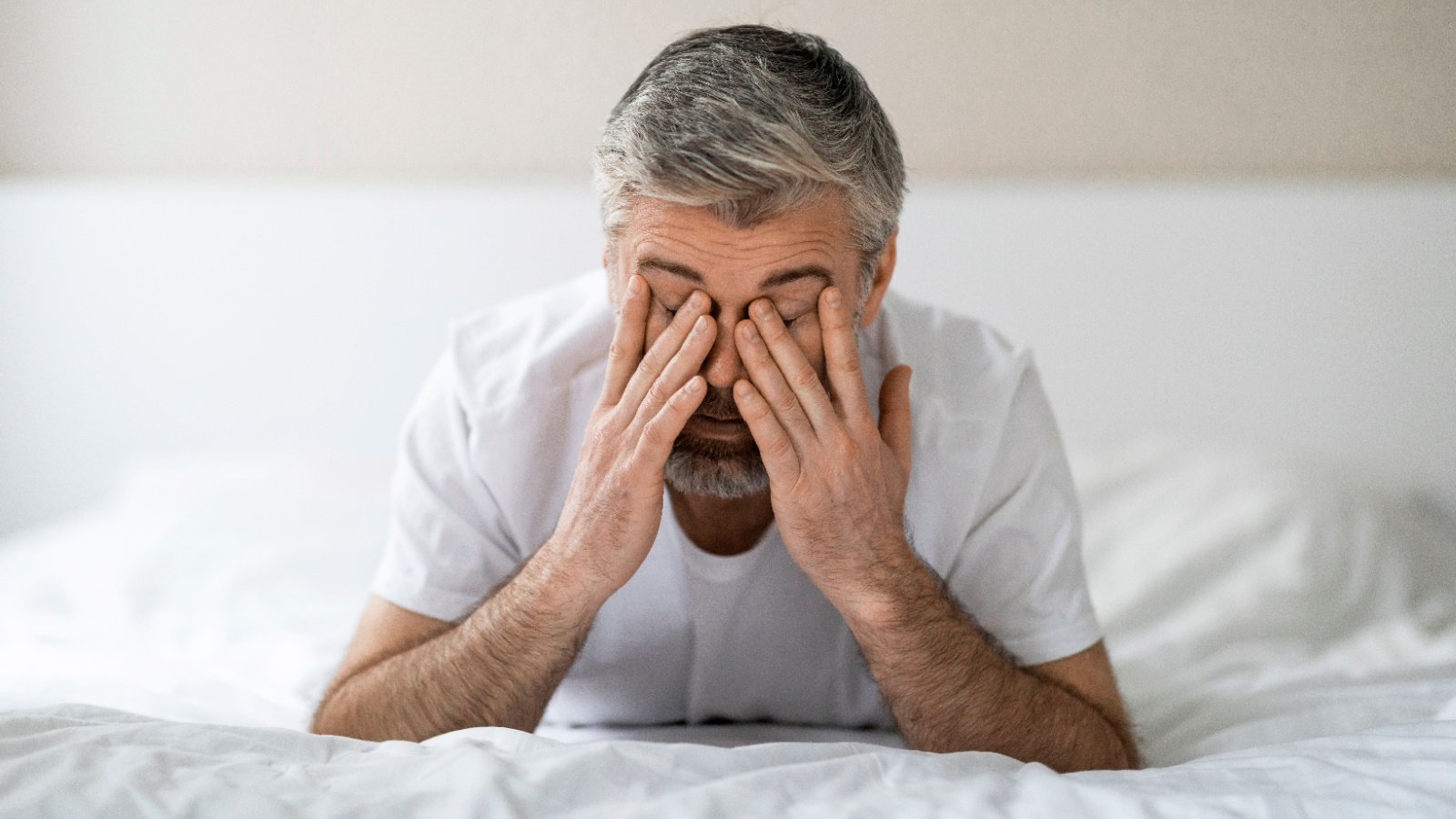Tired of Tossing and Turning? Ditch the Sleepless Nights with Solutions that Work.

As we juggle work, family, and daily life demands, ensuring a restful night becomes more critical than ever. Sometimes we seem to go through periods of restless nights, where high-quality sleep seems to elude us for multiple nights, weeks, or, unfortunately, sometimes longer. Before you give up hope, make sure to try some (or all) of these tired and true techniques for getting a more restful night.
Consistent Sleep Schedule
Setting a regular sleep pattern is crucial. Go to bed and wake up at the same time daily, even on weekends. Our bodies have an internal clock, known as the circadian rhythm, which dictates sleep and wakefulness. By adhering to a strict routine, we can synchronize our bodies to this rhythm, making it easier to fall and stay asleep.
Create a Sleep-friendly Environment
Your bedroom should be a sleep sanctuary. It’s best to have a cool, dark, and quiet space. Using blackout curtains, earplugs, and a fan or white-noise machine can block out disturbances. A comfortable mattress and pillows will also make a difference, so invest in quality bedding that supports your sleeping position.
Limit Screen Time
Blue light from electronic devices like phones, tablets, and TVs can interfere with our body’s production of melatonin, a hormone that regulates sleep. Consider using a screen dimmer or turning on the ‘night mode’ feature on your devices. It’s also wise to unplug at least an hour before bedtime to allow your body and mind to wind down.
Be Mindful of What You Eat and Drink
Heavy meals can cause discomfort and indigestion, making it hard to sleep. It’s best to finish dining at least two to three hours before bedtime. Also, be cautious with caffeine and alcohol intake. While alcohol might help you fall asleep, it can disrupt your sleep cycle later in the night.
Establish a Pre-sleep Routine.
Engaging in calming activities before bed can signal your body that it’s time to wind down. This could be reading a book, listening to soft music, or practicing deep-breathing exercises. These routines serve as a transition from the busyness of the day to peaceful sleep.
Physical Activity is Key.
Regular physical activity can promote better sleep, helping you fall asleep faster and enjoy deeper rest. However, try not to exercise too close to bedtime as it may energize you, making it harder to fall asleep. Aim for morning or early afternoon workouts.
Manage Worries

Try to resolve concerns or anxieties before bedtime. Keeping a journal, practicing meditation, or discussing issues with a partner can be helpful. Prioritize problems and tackle them head-on so they don’t linger in your mind at night.
Limit Naps
While napping can be beneficial, long or irregular napping can negatively affect nighttime sleep. If you choose to nap during the day, limit it to 20 to 30 minutes and avoid doing so late in the afternoon.
Natural Sleep Aids
Certain natural remedies, like melatonin, lavender, and valerian root, might help some people sleep better. However, always consult with a healthcare professional before incorporating any supplement or herb into your routine.
Mind Your Medications
Some medications can interfere with sleep. If you suspect your medication is affecting your sleep, consult with your doctor or pharmacist. They can provide guidance or offer alternative treatments.
Ditch the Clock-watching
Constantly checking the clock when you can’t sleep can increase stress. Consider turning your clock away from view or placing it in a drawer. This way, if you do wake up, you’re not instantly anxious about the time.
Prioritize Comfort
Make sure your sleepwear is comfortable. Choose breathable fabrics and avoid tight-fitting clothes. Your body temperature drops when you sleep, so consider using layered blankets, allowing you to add or remove layers as needed.
Keep Pets Off the Bed
While we love our furry friends, they can be restless at night. If your pet is causing disturbances, consider giving them their bed or placing them in another room during the night.
Listen to Soothing Sounds
Sounds like white noise, soft music, or nature sounds can help mask external noises and induce a calm state, making it easier to fall asleep.
Seek Professional Help
If sleep remains elusive despite your best efforts, it may be time to consult with a sleep specialist. Sleep disorders, such as sleep apnea or insomnia, might be the underlying cause. A specialist can offer guidance and treatments to help you get the rest you need.
Josh Dudick
Josh is the owner and lead writer at Daily Wisely. His career has taken him from finance to blogging, and now shares his insights with readers of Daily Wisely.
Josh's work and authoritative advice have appeared in major publications like Nasdaq, Forbes, The Sun, Yahoo! Finance, CBS News, Fortune, The Street, MSN Money, and Go Banking Rates. Josh has over 15 years of experience on Wall Street, and currently shares his financial expertise in investing, wealth management, markets, taxes, real estate, and personal finance on his other website, Top Dollar Investor.
Josh graduated from Cornell University with a degree from the Dyson School of Applied Economics & Management at the SC Johnson College of Business.
